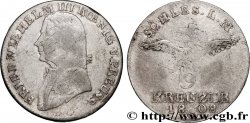E-auction 383-295950 - fwo_601160 - GERMANIA - PRUSSIA 1/3 de Thaler Frédéric II 1772 Berlin
Devi Sign-in ed essere un offerente approvato fare un'offerta, Login per fare offerte. Conti sono soggetti ad approvazione e di approvazione sono raggiunti entro 48 ore. Non aspettare fino al giorno di una vendita si chiude per registrarti.Confermando la tua offerta su questo oggetto ti impegni ad un contratto legalmente vincolante per l'acquisto di questo prodotto e fare clic su «offerta» costituisce accettazione dei termini di utilizzo de e-auctions cgb.fr.
Offerta deve essere collocato in euro gli importi interi vendita only.The si chiuderà al momento sulla descrizione dell'oggetto, eventuali offerte pervenute al sito dopo l'orario di chiusura non verranno eseguite. Volte transmition possono variare e le offerte potrebbero essere respinto se si attende per gli ultimi secondi. Per ulteriori informazioni ckeck le FAQ.
SENZA COSTI PER GLI ACQUIRENTI.
SENZA COSTI PER GLI ACQUIRENTI.
| Valutazione : | 30 € |
| Prezzo : | 21 € |
| Offerta maxima : | 27 € |
| Data di fine vendita : | 17 agosto 2020 17:16:30 |
| partecipanti : | 7 partecipanti |
Tipo : 1/3 de Thaler Frédéric II
Data: 1772
Nome della officina / città: Berlin
Metallo : argento
Titolo in millesimi : 660 ‰
Diametro : 30 mm
Asse di coniazione : 12 h.
Peso : 7,02 g.
Orlo : décorée
N° nelle opere di riferimento :
Diritto
Titolatura diritto : FRIDERICUS BORUSSORUM REX.
Descrittivo diritto : Tête laurée à droite de Frédéric II.
Rovescio
Titolatura rovescio : ✿ 3 ✿ / EINEN / REICHS / THALER / 1772 / A.
Descrittivo rovescio : Couronne de lauriers.
Commento
Frédéric naquit à Berlin le 24 janvier 1712 et est le fils de Frédéric-Guillaume Ier. Il fut d'abord l'allié de la France dans la Guerre de Succession d'Autriche (1740-1748) puis il y eut retournement d'alliance lors de la Guerre de Sept Ans (1756-1763). Il fut l'un des grands vainqueurs du traité de Paris (1763) et participa au premier démembrement de la Pologne (1772). Frédéric II (1712-1786) fut le plus grand roi de Prusse. Ami de Voltaire, il écrivait en français et fut le modèle du despote éclairé de la seconde moitié du XVIIIe siècle. Il succéda à son père Frédéric-Guillaume, le Roi Sergent et fit de Berlin une véritable capitale et du Château de Sans Souci à Postdam un petit Versailles. Grâce à une politique belliqueuse, il fit de la Prusse l'état le plus puissant de l'Europe Orientale et contrebalança l'influence de l'Autriche et de la Russie. Il mourut au château de Sans-Souci (Potsdam), le 17 août 1786.
Frederic was born in Berlin on January 24, 1712 and is the son of Frederick William I. It was first France's ally in the War of the Austrian Succession (1740-1748) then there was a reversal of alliance during the Seven Years' War (1756-1763). He was one of the great winners of the Treaty of Paris (1763) and took part in the first dismemberment of Poland (1772). Frederick II (1712-1786) was the greatest king of Prussia. Friend of Voltaire, he wrote in French and was the model of the enlightened despot of the second half of the 18th century. He succeeded his father Frédéric-Guillaume, King Sergent and made Berlin a real capital and the Château de Sans Souci in Potsdam a little Versailles. Thanks to a warlike policy, he made Prussia the most powerful state in Eastern Europe and counterbalanced the influence of Austria and Russia. He died at the castle of Sans-Souci (Potsdam), August 17, 1786
Frederic was born in Berlin on January 24, 1712 and is the son of Frederick William I. It was first France's ally in the War of the Austrian Succession (1740-1748) then there was a reversal of alliance during the Seven Years' War (1756-1763). He was one of the great winners of the Treaty of Paris (1763) and took part in the first dismemberment of Poland (1772). Frederick II (1712-1786) was the greatest king of Prussia. Friend of Voltaire, he wrote in French and was the model of the enlightened despot of the second half of the 18th century. He succeeded his father Frédéric-Guillaume, King Sergent and made Berlin a real capital and the Château de Sans Souci in Potsdam a little Versailles. Thanks to a warlike policy, he made Prussia the most powerful state in Eastern Europe and counterbalanced the influence of Austria and Russia. He died at the castle of Sans-Souci (Potsdam), August 17, 1786








 Segnalare un errore
Segnalare un errore Stampate la pagina
Stampate la pagina Condividi mia selezione
Condividi mia selezione Fai una domanda
Fai una domanda Consegnare / vendere
Consegnare / vendere
 Descrittivo
Descrittivo











